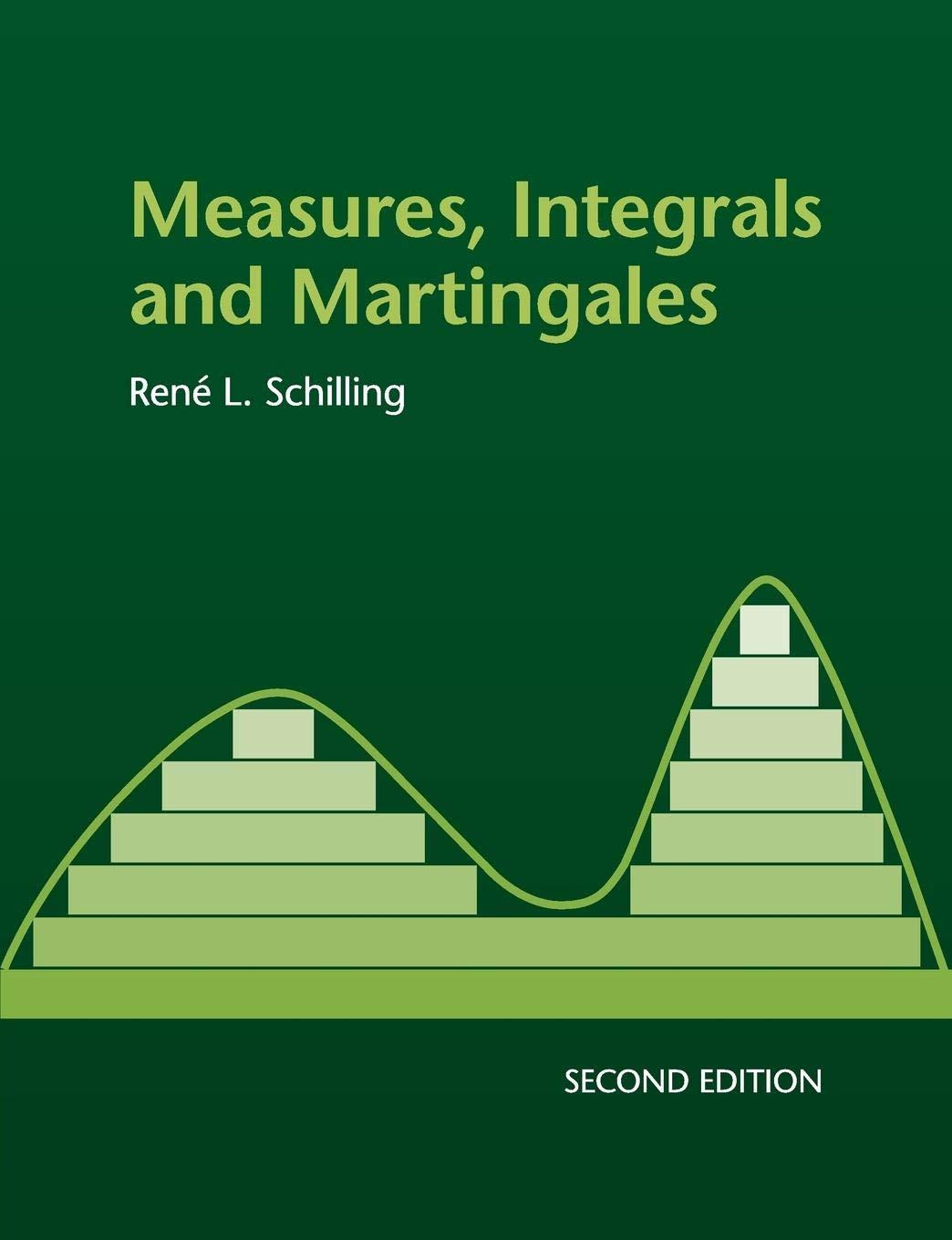Fubini's 'other' theorem. Let (left(f_{n}ight)_{n in mathbb{N}}) be a sequence of monotone increasing functions (f_{n}) : ([a,
Question:
Fubini's 'other' theorem. Let \(\left(f_{n}ight)_{n \in \mathbb{N}}\) be a sequence of monotone increasing functions \(f_{n}\) : \([a, b] ightarrow \mathbb{R}\). If the series \(s(x):=\sum_{n=1}^{\infty} f_{n}(x)\) converges, then \(s^{\prime}(x)\) exists a.e. and is given by \(s^{\prime}(x)=\sum_{n=1}^{\infty} f_{n}^{\prime}(x)\) a.e.
[ the partial sums \(s_{n}(x)\) and \(s(x)\) are again increasing functions and, by Problem 25.14 , \(s^{\prime}(x)\) and \(s_{n}^{\prime}(x)\) exist a.e.; the latter can be calculated through term-by-term differentiation. Since the \(f_{i}\) are increasing functions, the limits of the difference quotients show that \(0 \leqslant s_{n}^{\prime} \leqslant s_{n+1}^{\prime} \leqslant s^{\prime}\) a.e., hence \(\sum_{i} f_{i}^{\prime}\) converges a.e. To identify this series with \(s^{\prime}\), show that \(\sum_{k}\left(s(x)-s_{n_{k}}(x)ight)\) converges on \([a, b]\) for some suitable subsequence. The first part of the proof applied to this series implies that \(\sum_{k}\left(s^{\prime}(x)-s_{n_{k}}^{\prime}(x)ight)\) converges, thus \(s^{\prime}-s_{n_{k}}^{\prime} ightarrow 0\).]
Step by Step Answer:






